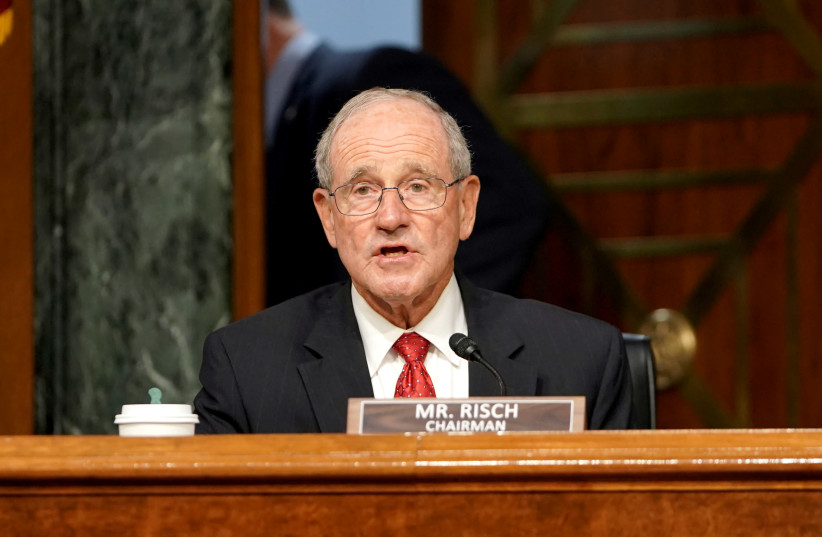Israel’s judicial overhaul program won’t harm Israel’s relationship with the United States, Senator Jim Risch (R-Idaho) told The Jerusalem Post as he visited Jerusalem during a tumultuous political week in which the Knesset advanced phases of that reform.
“I do not think this would hurt relations with the US,” said Risch who is the ranking member of the Senate Foreign Affairs Committee.
Democracy “is important to the relationship” with Israel and “I would say it is a pillar of those ties, he said as he explained that It is easier for democracy to have a “better relationship” with the United States “because our values are more shared.”
Risch noted, however, that the United States has “relationships with all kinds of countries that have different systems of governance."
Netanyahu's critics voice their opinions

Critics have warned Prime Minister Benjamin Netanyahu’s new government that its judicial overhaul program would weaken the country’s democracy with some of its fiercest opponents stating they feared it would transform Israel into a dictatorship.
US President Joe Biden and US Secretary of State Antony Blinken took the unusual step of appearing to interfere in Israel's domestic affairs, urging the Netanyahu government to rely on a non-partisan consensus process to complete the judicial reform.
Risch said that as an American it was difficult to fully understand the impact of the reform on Israel. Given what he does know however, Risch said, “I am not so sure that the changes that [the new government is] proposing change the system from a democracy.
“It adjusts the way the democracy works but I wouldn’t say that passing this judicial reforms is going to take Israel out of the democracy column,” he said. “It is still a democracy where you elect people to enact laws and then administrate those laws,” he said.
“Your system is different than ours and how this will affect it, is up to you and to the Israeli people,
“I am always hesitant to criticize that [issue] without knowing the full consequences and I would give that same advice to my friends in the Biden administration,” he added.
Risch is traveling in Israel with Senator Alex Padilla (D-CA). Both men met Tuesday with Netanyahu in Jerusalem.
After the visit, Netanyahu touted the strength of Israeli-US ties issuing a statement in which he said “the US is our greatest friend and that meetings such as the one he held with Risch and Padilla were an “expression of the preservation of the bipartisan ties with Israel.”
“Among the topics discussed were the Abraham Accords and their possible expansion, as well as confronting Iran and its proxies,” Netanyahu said.
Later that day, he spoke about the importance of a credible military threat in preventing a nuclear Iran when he addressed the Hertog Foundation National Security Forum in Tel Aviv.
Risch said that Netanyahu was correct about the deterrence power of a credible military threat, noting that it certainly “can be a barrier” and it has stopped nuclear activity in the past.
He added that “the bigger question is “when do you execute military action and that is a separate and more complicated question.”
It is important that “all options are on the table” and that is what Netanyahu was saying, he added.
The United States has “a credible military threat” in place "whether the Iranians believe it or not, and how they act on it, is up to them,” he said.
It isn’t just a military threat that is needed, Risch said as he spoke of the importance of “more sanctions” that are harder and tighter, as well as increasing Iran’s isolation in the international community.
Iranians need to “weigh what price they want to pay to proceed to construct a nuclear weapon,” he said. Iranians “know the consequences of this and they have to make the decision whether they want to ahead with it or not,” Risch said adding that “if they do, anything that happens is on them.”
